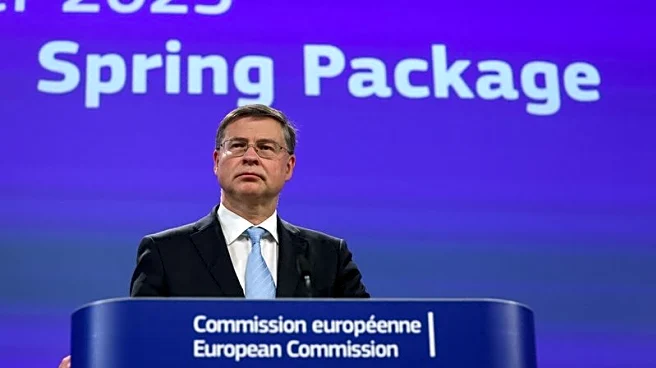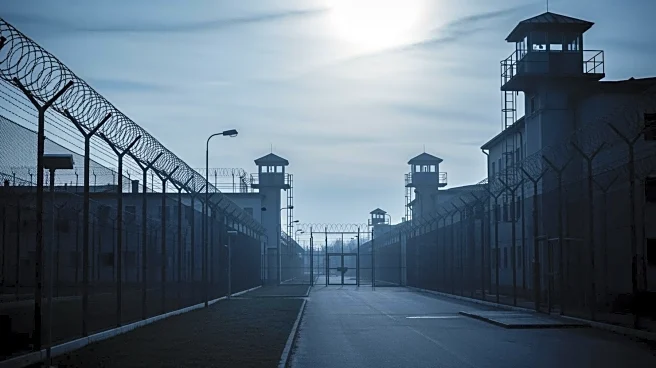BRUSSELS (Reuters) -Financial guarantees EU members are likely to have to provide to cover a reparation loan to Ukraine should not count towards their deficit and debt targets, European Economy Commissioner Valdis Dombrovskis said on Friday.
The European Commission has floated a plan to use Russian frozen assets to underpin a 140 billion euro ($162 billion) loan to Ukraine. The loan would only be repaid once Ukraine receives reparations from Russia for damage incurred during the three-and-a-half-year
war.
EU finance ministers discussed the loan on Friday and Dombrovskis said Italy's Giancarlo Giorgetti and others had raised the matter of guarantees.
Dombrovskis said that under the plan outlined, with the EU holding Russian assets until Moscow paid reparations, the guarantees should not actually be called.
However, EU statistics agency Eurostat would need to confirm this did not count towards deficit and debt levels once a concrete plan was available.
Dombrovskis also said the Commission was looking at how to ensure that renewal of sanctions against Russia could not be blocked by one or a handful of EU members. Sanctions decisions currently require unanimity.
The commissioner referred to an IMF estimate that Ukraine has a financing gap of $60 billion for 2026 and 2027, without counting military support, and said support for Ukraine would be discussed by G7 ministers at the World Bank and IMF annual meetings in Washington next week.
Dombrovskis said the EU was not looking for other G7 members to guarantee the EU loan, but for them to apply similar mechanisms for frozen assets in their territories. Britain and Canada had expressed interest in following the European model, he said.
The Russian central bank previously confirmed that it has around $300-350 billion worth of assets frozen in the West.
The majority of the immobilised assets are in Europe and many have already matured and become cash held by Belgian securities repository Euroclear. Belgium has said other EU members must share the risk of providing the loan to Ukraine.
($1 = 0.8645 euros)
(Reporting by Philip Blenkinsop; Editing by Toby Chopra)















